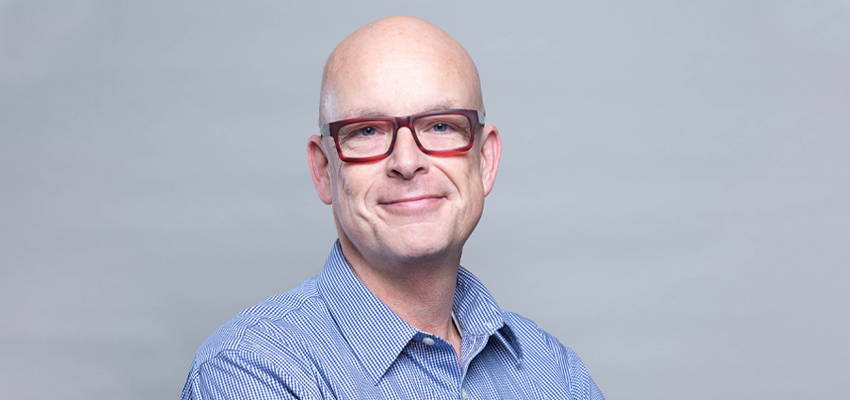My thoughts on freedom of expression
Tim Rahilly, PhD • Posted October 10, 2019

Why should a university defend the right of its community members to articulate ideas or make statements that some deem offensive? How can a university allow people on its campus, including its students, faculty and staff, those who rent space, or even "uninvited guests" to promote causes that may result in concerns from individuals who feel hurt, marginalized, or that their dignity has been compromised? How can a university with the slogan, "You Belong Here" allow that to happen?
Our University is part of a world-wide academic community. Central to our existence is the call to educate and support the creation of knowledge for the common good of society. A cornerstone or tenet of being a university is that, within the bounds of Canadian law, everyone on campus has the basic right to freely express their ideas.
Sometimes freedom of expression and academic freedom are used interchangeably, but it is important to remember that these two freedoms are different. Individual MRU faculty members enjoy the right of academic freedom which is fully outlined in the Mount Royal Faculty Association Collective Agreement, and in part reads:
"Academic members of the community are entitled, regardless of prescribed doctrine, to freedom in designing and carrying out research and in publishing the results thereof, freedom of teaching and of discussion, freedom to criticize the University and the faculty association, and freedom from institutional censorship."
"A cornerstone or tenet of being a university is that, within the bounds of Canadian law, everyone on campus has the basic right to freely express their ideas."
To suppress the freedom of expression of any member of our campus community is antithetical to our primary function as a university. While it is easy to support this principle when one agrees with the ideas presented, as a community we have a shared responsibility to uphold and defend this freedom even when we disagree.
While MRU places great value on freedom of expression, in no way does that imply the institution, its governing bodies, its leadership or its community members agree or endorse views that are expressed. As an academic community, it is expected that all ideas, statements and espoused beliefs are to be challenged and examined, with each individual free to make the independent decision to accept or reject them. Everyone on our campus has both the right and the responsibility to decide which ideas hold merit for them, and which do not.
Defending freedom of expression is not easy work, but it is a matter of personal and institutional integrity. As the President of MRU, I am committed to supporting members of our campus community who make critical statements about the University and its administration. As an individual, I may feel disrespected or hurt by views I find personally reprehensible or compromising to my own sense of wellbeing. Regardless of how I personally feel, I am dedicated to upholding the expression of these views.
"Everyone on our campus has both the right and the responsibility to decide which ideas hold merit for them, and which do not."
As President I am not, and should not be the arbiter of right and wrong, moral and immoral or the enforcer of political correctness. If the senior administration of the University is doing its job well, MRU will be a place where everyone on campus feels equipped and confident to speak out against ideas, views, and assertions of others. MRU must strive to be a model for allowing opposing viewpoints to co-exist in peace.
Universities are made up of people ... complex people. Every student, faculty and staff member brings energy and ideas to campuses, and they also bring their own complex identity which includes ancestry, ability, gender, race, religious belief and sexual orientation, along with hard-earned life experiences, values, etc. The list goes on.
Bringing the complexity of one's identity to Mount Royal is important. MRU emphasizes personalized learning, and I'd argue that by definition, ALL learning is personal. We all relate new knowledge to what we already know and who we are as people. Mount Royal's slogan is, "You Belong Here." And you do! I believe each person who has found their way to MRU belongs and makes our campus better.
"When individuals or groups feel emotionally impacted by views, as a community we must support them and affirm their importance as members of our campus."
My preference is that we work collectively to ensure that our campus is characterised by respect, civility and empathy for one another. Ideally, those who knowingly make offensive or provocative statements also recognize the impact on individuals and the campus as a whole. When individuals or groups feel emotionally impacted by views, as a community we must support them and affirm their importance as members of our campus. When controversy occurs, I believe we allow free speech and, in parallel, mobilize support for those in our campus community personally feeling disrespected in difficult times.
As we embark on broad campus consultation about freedom of expression, it is critical to recognize that the words we write in support of this important topic will only gain meaning when we enact them in times of controversy. We need to continually educate ourselves and our campus community about the role of universities, how to manage our own responses to the opinions of others, how to speak up equally and respectfully on opposite sides of issues and how to support one another as the dialogue unfolds over the years to come.
For as long as academia has existed, defining and enabling freedom of expression has been a challenging exercise; however, I am confident that here at Mount Royal, in the spirit of mutual respect and intellectual inquiry we are well-positioned to take the next steps forward.

